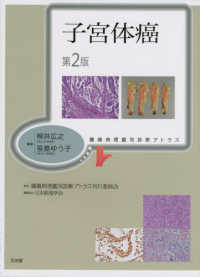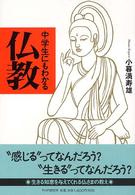- ホーム
- > 洋書
- > 英文書
- > Literary Criticism
Full Description
Winner of the 2019 Patrick F. Quinn Award for the best book on Poe (awarded by the Poe Studies Association)
Edgar Allan Poe and His Nineteenth-Century American Counterparts addresses Poe's connections with, critical assessments of, borrowings from, and effect on his literary peers. It situates Poe within his own time and place, paying particular attention to his interactions with, and impact on, figures such as Nathaniel Hawthorne, Walt Whitman, Herman Melville, Mark Twain, Harriet Jacobs, and Pauline Hopkins.
John Cullen Gruesser rebuts myths that continue to cling to Poe, demonstrates Poe's ability to transform themes he encountered in the works of his literary contemporaries into great literature, and establishes the profound influence of Poe's invention of detective fiction on nineteenth-century American writers.
Contents
Introduction: Dreams and Mystifications of Poe
Part I: The Quixotic Quest for Literary Fame, Financial Stability, and a Republic of Letters in Antebellum America
1: Poor Edgar's Almanac: E. A. Poe's Money Woes
2: Outside Looking In: Poe and New York City
3: Eddy P., the Scrivener: Biography and Autobiography in Herman Melville's "Story of Wall-Street"
Part II: The Competition in Cunning: Ramifications of and Responses to Poe's Ratiocinative Tales
4: Character Rivalry, Authorial Sleight-of-Hand, and Generic Fluidity in the Dupin Trilogy
5: Varieties of Detection in Nathaniel Hawthorne's The Scarlet Letter, Walt Whitman's Life and Adventures of Jack Engle, Herman Melville's Benito Cereno, and Mark Twain's "The Stolen White Elephant"
6: Madness, Mystification, and "Average Racism" in "The Gold-Bug," E. D. E. N. Southworth's The Hidden Hand, Harriet Jacobs's Incidents in the Life of a Slave Girl, and Pauline Hopkins's Hagar's Daughter
Coda: "A Crime of Dark Dye": Misreading Poe's Criticism
Notes
Index








